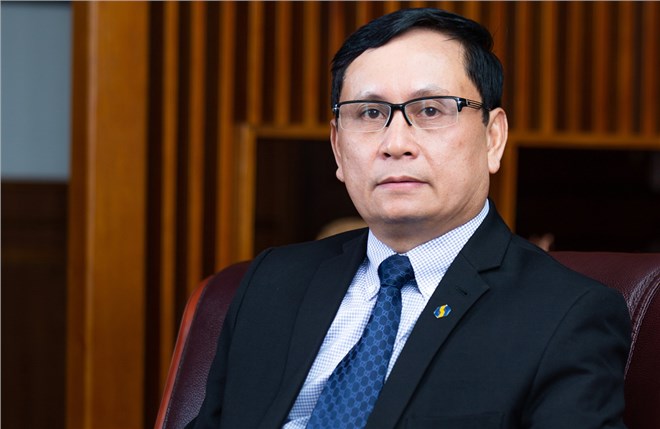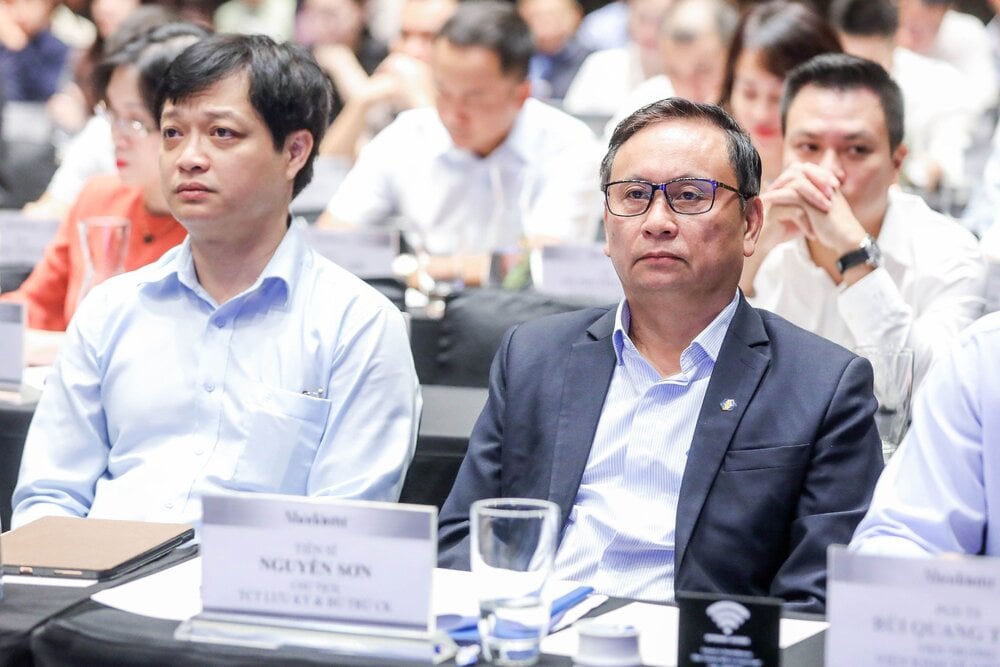
The key is that KRX has not yet been deployed.
According to Dr. Nguyen Son - Chairman of the Securities Depository and Clearing Corporation (VSDC), the fundamental and long-term solution to the problem of pre-transaction margin requirements is to implement a clearing and settlement mechanism for securities transactions according to the central clearing counterparty (CCP) model. At that time, legal documents do not require investors to deposit margin before trading. At the same time, VSDC is the unit responsible for final payment for investors' transactions (with the CCP mechanism, there will be no cancellation of transactions when investors are unable to pay).
In addition, the securities law and banking law have some inconsistent contents that need to be supplemented and amended, such as: Commercial banks and foreign bank branches providing securities depository services need to be allowed to become clearing members, connected to the VSDC's payment clearing system to receive notifications of investors' payment obligations. Make payment transactions for investors who are their customers directly with VSDC.
In case the investor does not have enough money or securities to pay for his transaction, the responsibility for paying for the securities transaction will be transferred to the securities company where the investor placed the order.
"VSDC is working with the State Securities Commission (SSC) and the Ministry of Finance with the State Bank to propose that the Government and the National Assembly amend legal documents (Law on Credit Institutions, Law on Securities and Decrees guiding the Law). However, this work will take a long time," said Mr. Son.

Securities companies can decide on their own margin.
As an immediate solution and to ensure the goal of upgrading the market by 2025, Dr. Nguyen Son said that VSDC is working with the State Securities Commission to propose and recommend that the Ministry of Finance consider amending Circular 120 to remove the regulation that investors must deposit 100% of money before buying securities. Instead, it allows securities companies to proactively regulate whether their investors must deposit or not.
The margin ratio for each investor is based on the credit assessment of the securities company for each investor (KYC assessment) and the risk level of each security. In case the investor does not have enough money to pay for the transaction, the securities company will have to make payment to the investor. This also applies to cases where the investor opens a depository account at a custodian bank and only places orders at the securities company (a common case for foreign financial institution investors).
In order for securities companies to be able to control risks when applying this mechanism, Mr. Son said, VSDC is working with the State Securities Commission with depository banks and securities companies to find solutions to help securities companies control risks. The Chairman of VSDC proposed that the Ministry of Finance add a regulation: In case the investor does not have enough money and the securities company has to pay for the investor's purchase transaction, the securities will be transferred to the securities company's proprietary account and the securities company has the right to sell the above securities to recover the debt.
He also recommended that investors, securities companies and custodian banks sign a three-party contract, which stipulates the cases in which the securities company must sell securities to recover debts. If the debt is not fully recovered, the securities company is allowed to sell a portion of the investor's securities currently deposited at the custodian bank.
At the same time, it is recommended that the Ministry of Finance impose penalties on investors who do not fulfill payment obligations, such as banning transactions.
Source





![[Photo] Binh Trieu 1 Bridge has been completed, raised by 1.1m, and will open to traffic at the end of November.](https://vphoto.vietnam.vn/thumb/1200x675/vietnam/resource/IMAGE/2025/10/2/a6549e2a3b5848a1ba76a1ded6141fae)






























































































Comment (0)